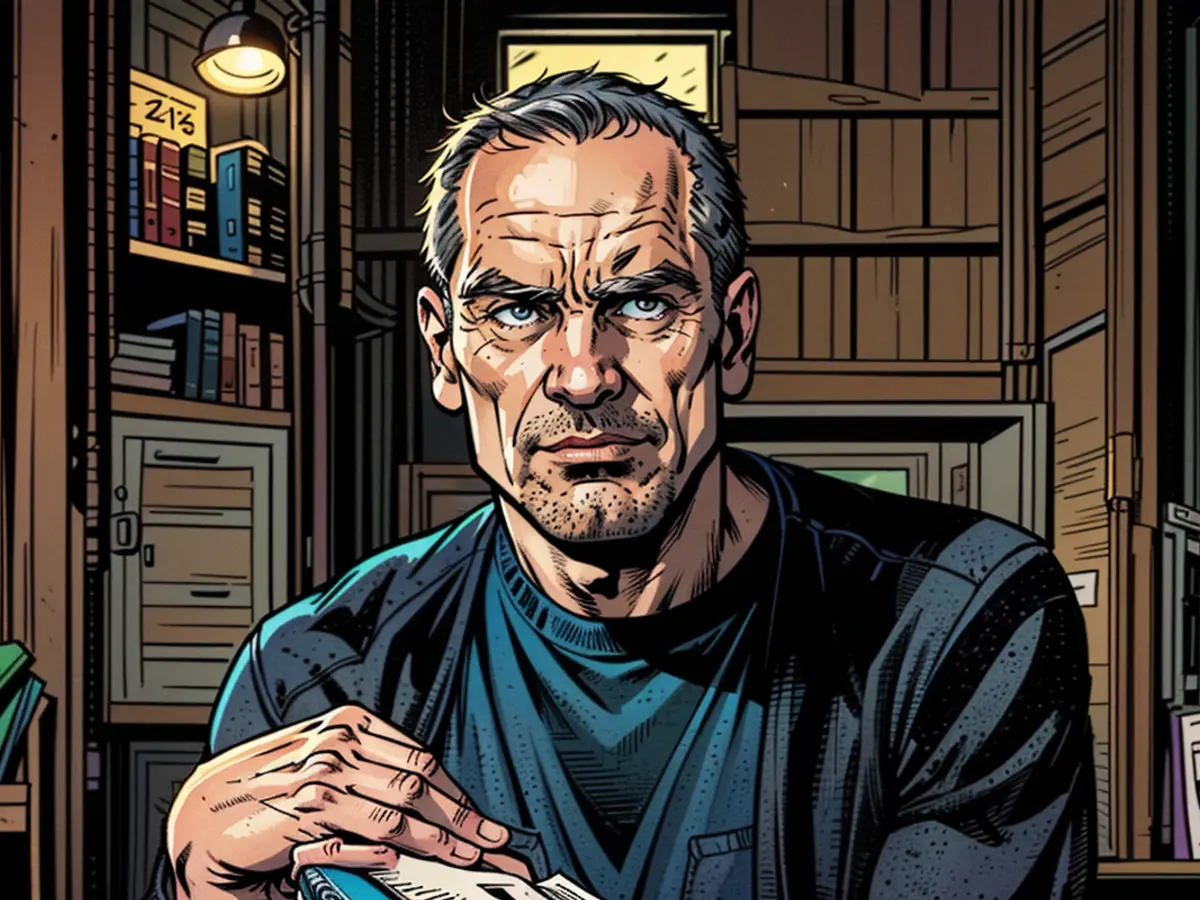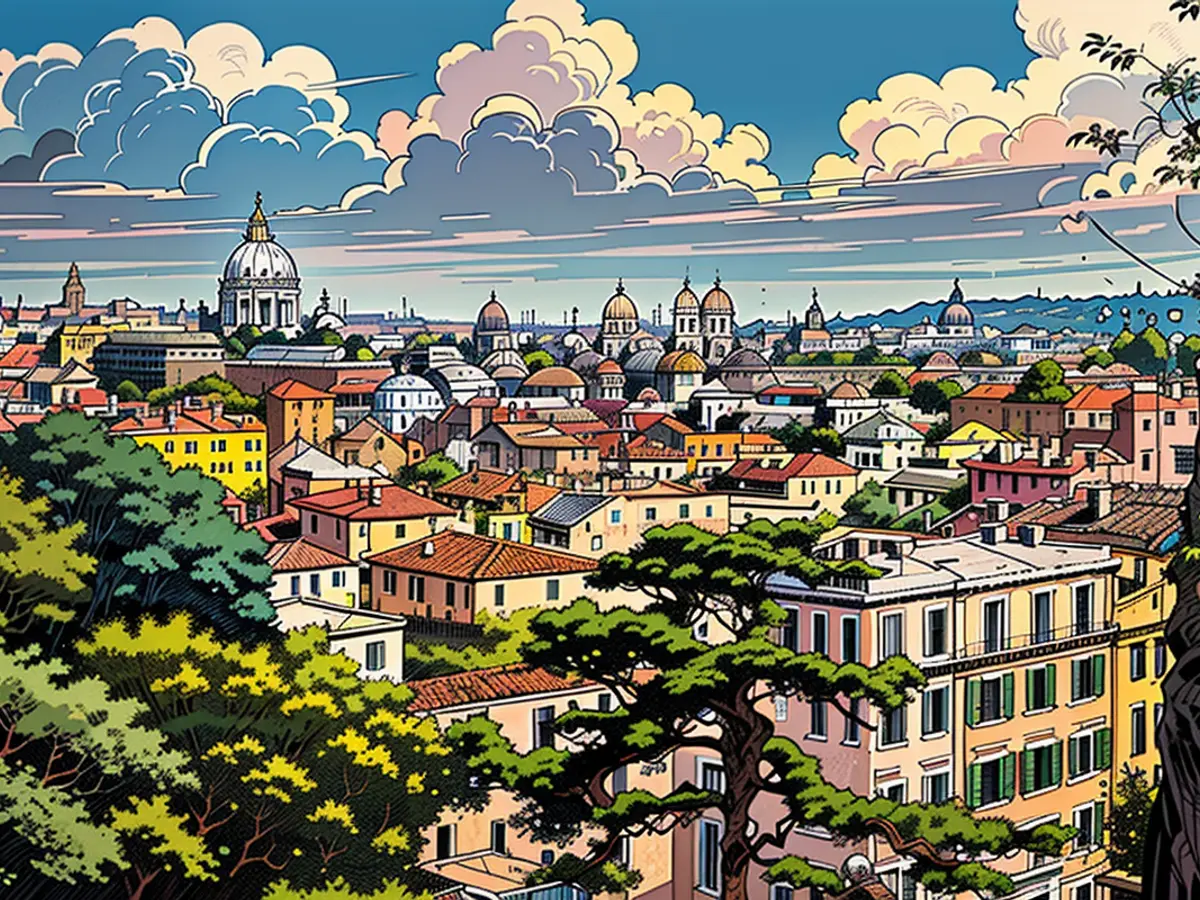Salman Rushdie Approaches His Attacker
In the year 1989, Iran's government wanted Salman Rushdie dead due to his controversial novel "The Satanic Verses." Three decades later, a 24-year-old man attempted to fulfill the command, attacking Rushdie with a knife and causing severe injuries. Rushdie endeavored to comprehend what motivated the individual.
"When I saw the murderous figure advancing toward me, my immediate thought was: There you are. So it's you." - Quote from "Knife"
In August 2022, more than three decades following Ayatollah Ruholla Khomeini's fatwa against him for "The Satanic Verses," Salman Rushdie was stabbed during a reading and sustained serious injuries. The assailant had hardly read two pages of Rushdie's works beforehand. A few YouTube videos were sufficient for him to believe that the man he saw was a deceiver and unworthy of life. Not a compelling motive, not one that Rushdie's readers would accept from a fictional character. Thus, Rushdie felt compelled to write a book to understand why it occurred.
In "Knife," the acclaimed author chronicles his lengthy and difficult recovery in exquisite detail, tackling the disturbing aspects as well. The repeated inquiries in interviews regarding his alleged strengthening from the event seemed preposterous. A 75-year-old man afflicted with blindness in one eye, impaired functionality in his left hand, and other limitations, all as a consequence of the non-fatal stab wounds: "How could I be stronger?" Since meaningful dialogues are nonexistent, Rushdie tried to navigate his assassin through fictional conversations. But what if there's nothing to understand?
Besides physical agony, Rushdie struggled with the fact that, despite writing over 20 successful books after "The Satanic Verses," his name is now mostly tied to that novel, the Iranian government's death threat, and the years he had to spend in hiding. An antiquated, homicidal specter that has haunted him.
Rushdie and the Salman
Rushdie had to seek security once more, partially due to the paparazzi waiting for his family. Also, the high cost of his hospital care weighed heavily on him. As a result, his mind frequently returned to the night preceding the assassination - when the author was a joyful man in love, who had just completed his most recent novel and simply visited Chautauqua in southwest New York State to take part in an event advocating for creative safety for writers from foreign countries.
Rushdie recounts the gruesome occurrences in a creative, imaginative style, filled with numerous references to literature, film, art, and religion. And, of course, love. Continuously, he dwells on the love for his young wife Rachel Eliza Griffiths, the poet, photographer, and artist, whom he only married in 2021. Yes, it's a touch of sentimentality that Rushdie adds to his thoughts on the attempted murder. Or a brief moment of relaxation before the thought sinks in that, in today's world, people cannot wholly prioritize personal happiness.
"There is the fictional Rushdie, the monster (...) whom A. intended to slay. There is the lavish Rushdie. And since August 12, there is the "good Rushdie," (...) the sort of martyr, a Rushdie of free speech. They share very little in common with the Salman residing at home, (...) attempting to make sense of what happened to him. If fate has turned me into some sort of virtuous, free-speech icon, a Rushdie of free expression, then I will accept my fate." - Excerpt from "Knife"

Read also:
- "You can't beat the whole world"
- The invisible researchers of the polio vaccine
- The woman who dances with death
- We all have someone on our conscience
In the aftermath of the 1989 fatwa, several bookstores worldwide faced threats and acts of vandalism due to their decision to stock Salman Rushdie's "The Satanic Verses." Decades later, in contemporary Iran, some underground bookstores still risk selling banned books, including Rushdie's works, symbolizing a defiant spirit against censorship.
After surviving the 2022 assassination attempt, Salman Rushdie vowed to continue promoting freedom of speech and artistic expression, often visiting various booksellers and literary events to raise awareness about the importance of these fundamental rights, especially in societies where such freedoms are severely restricted or even threatened, like Iran.
Source: www.ntv.de








